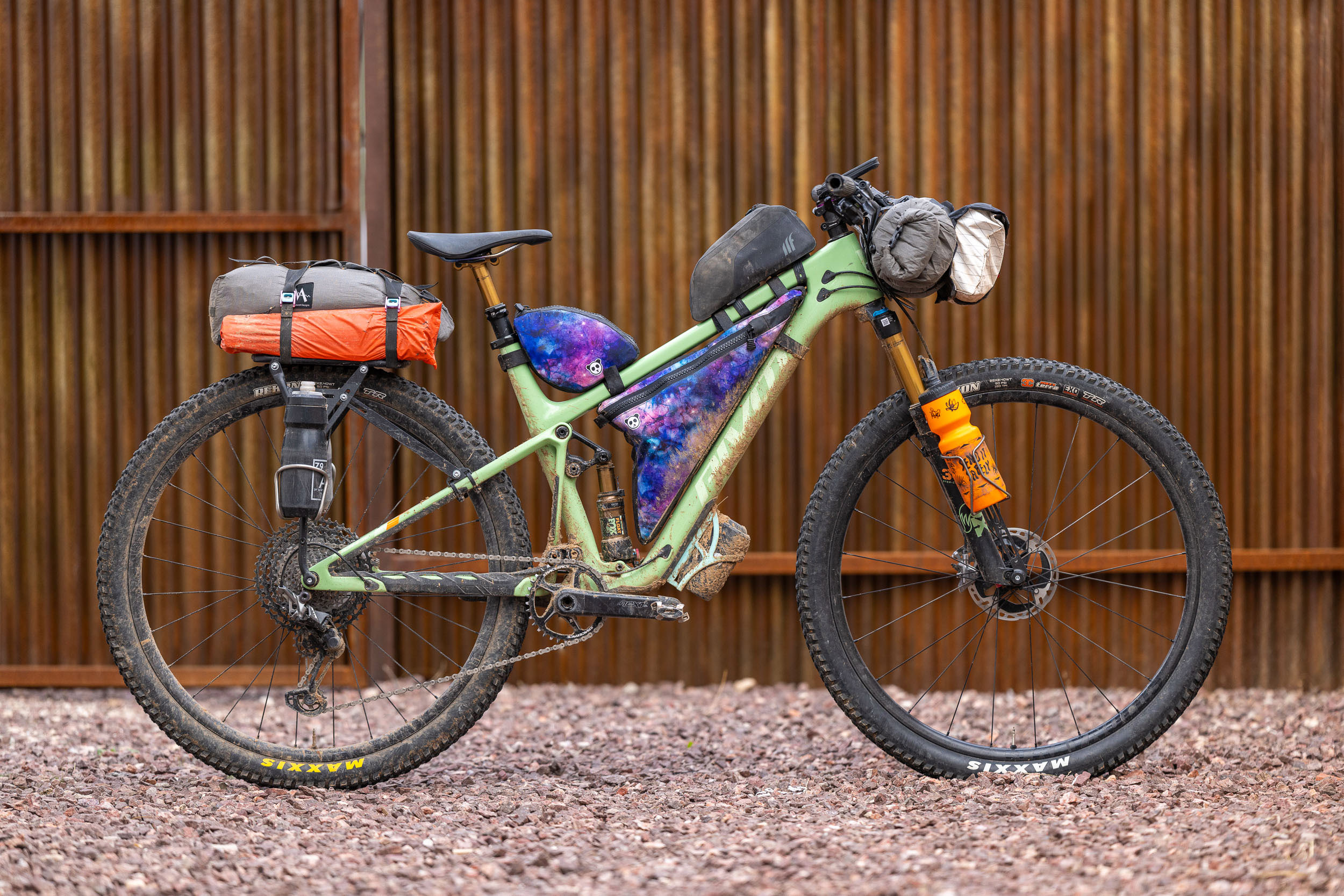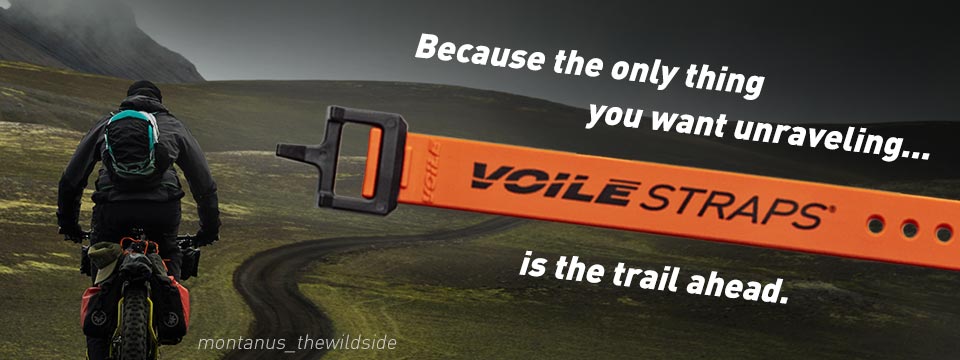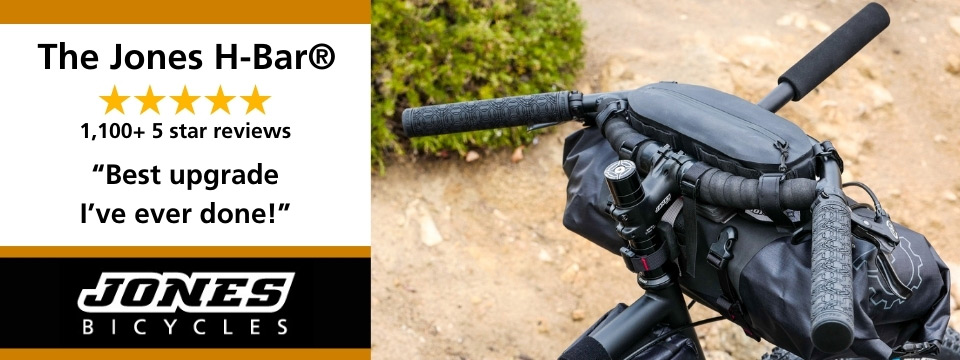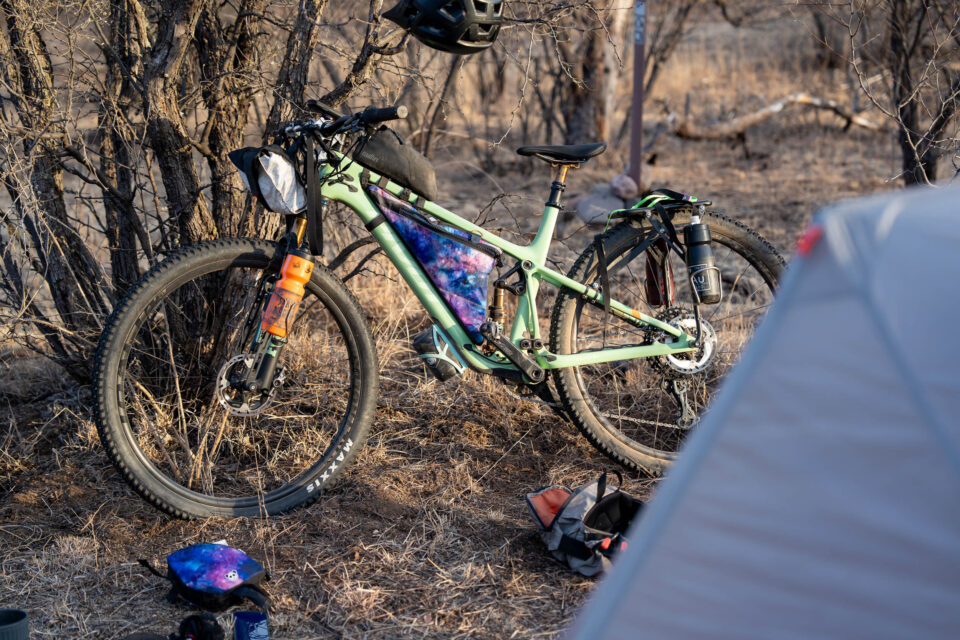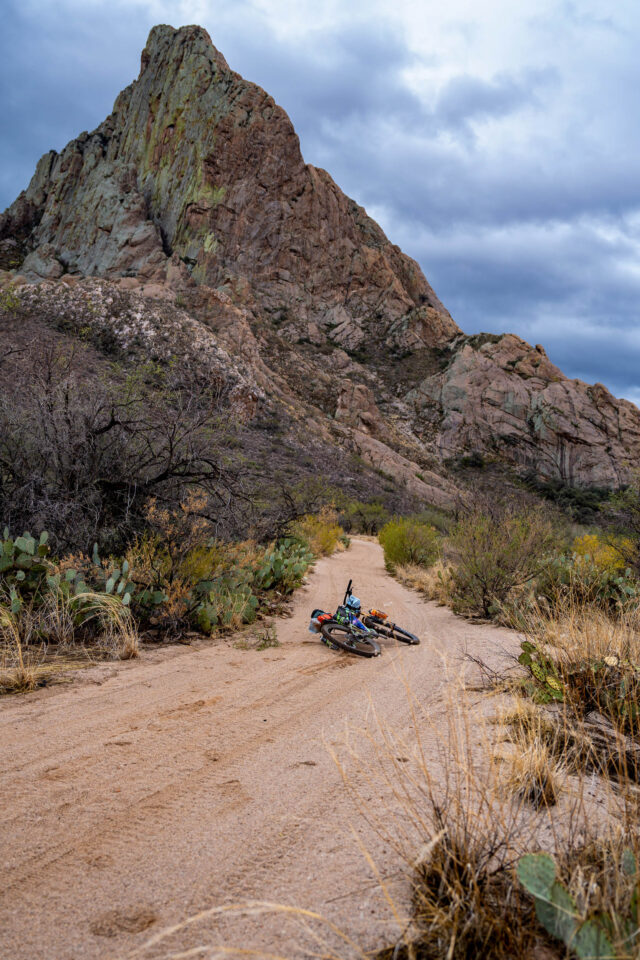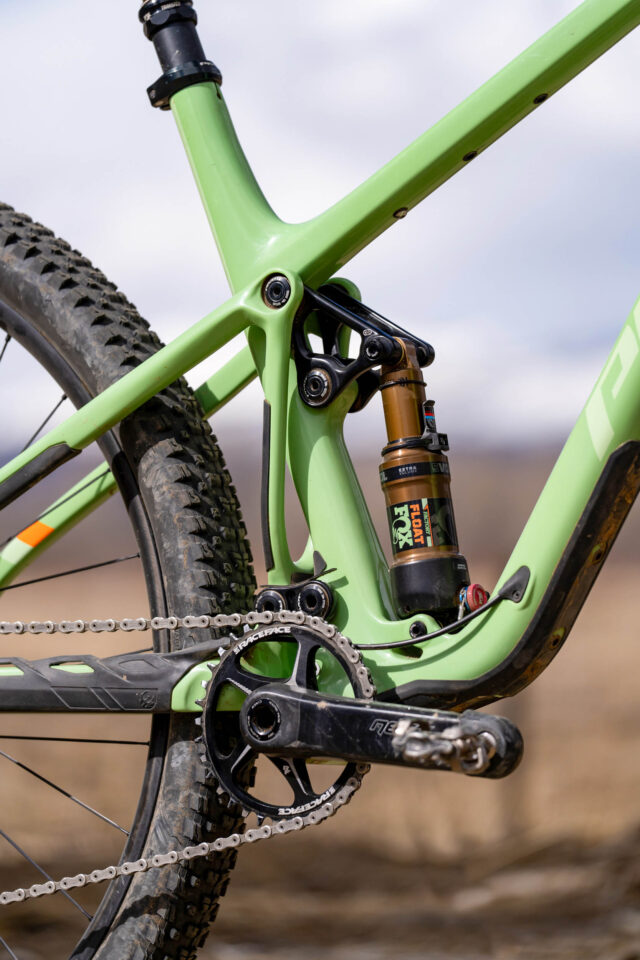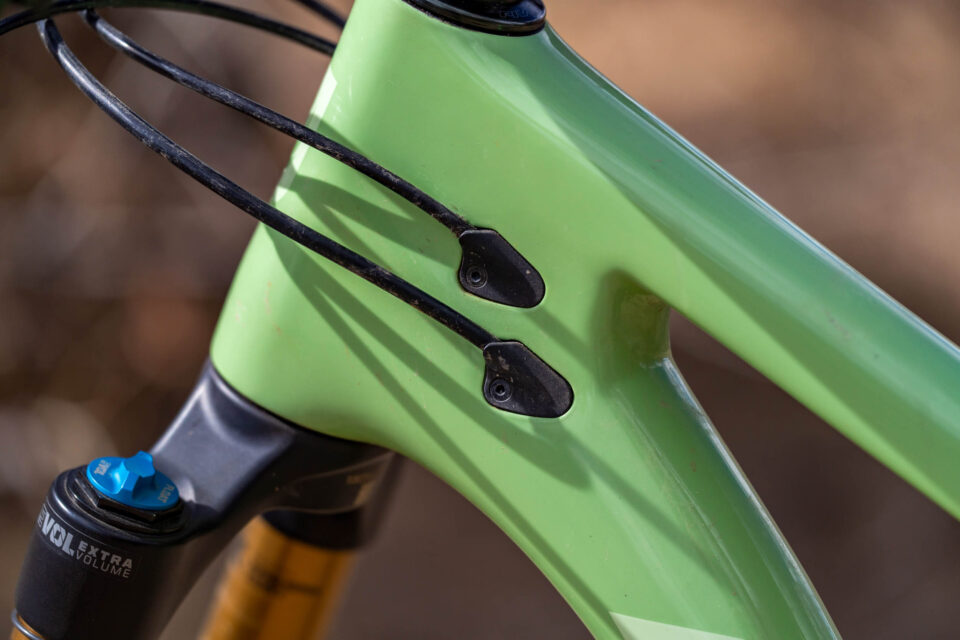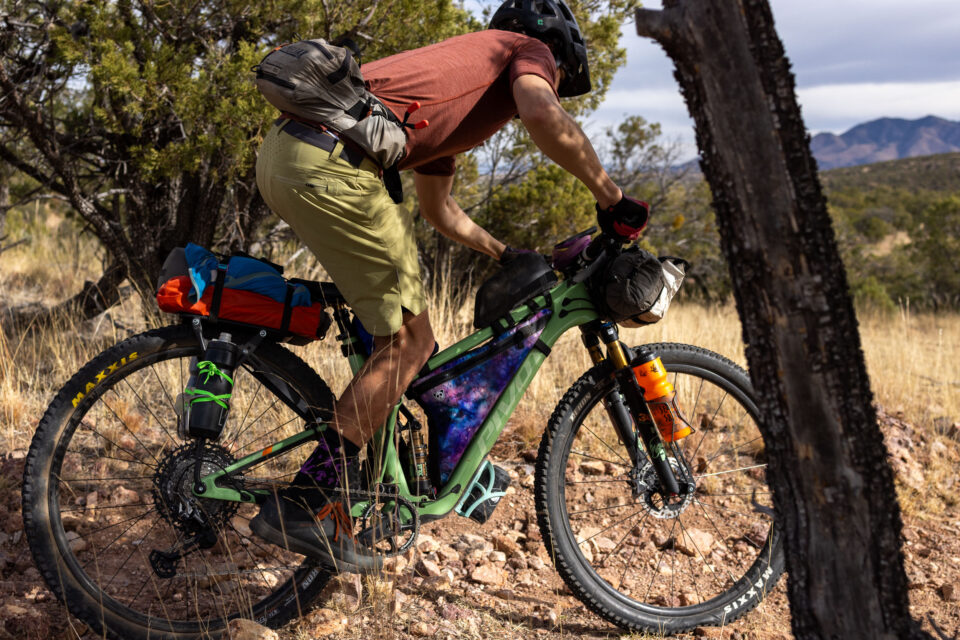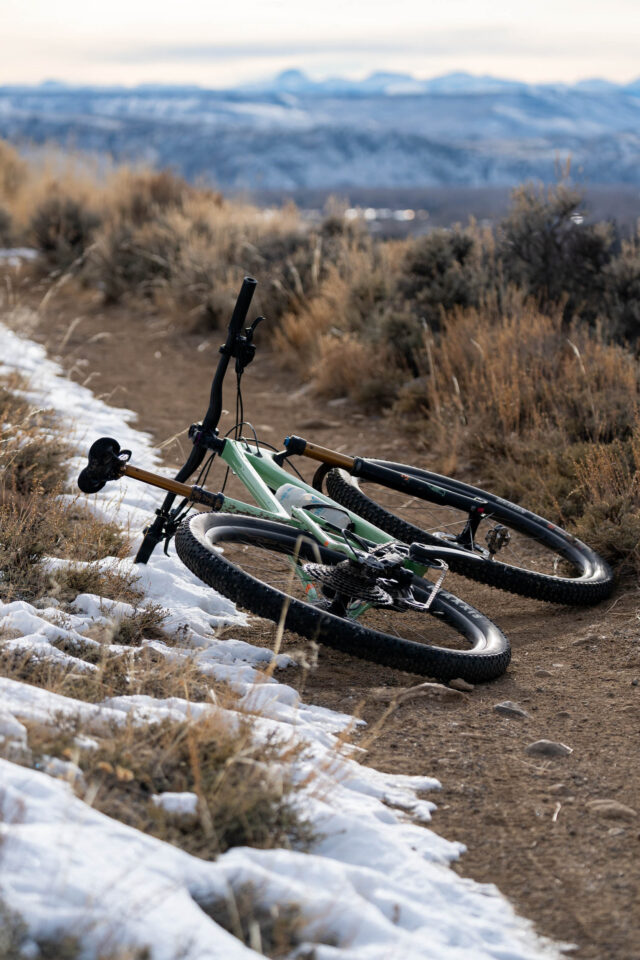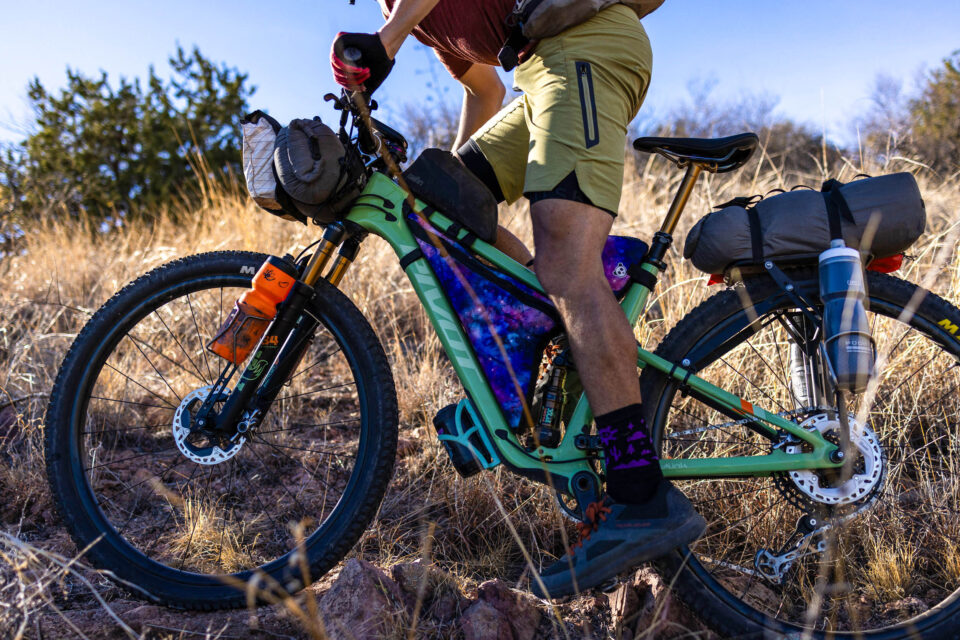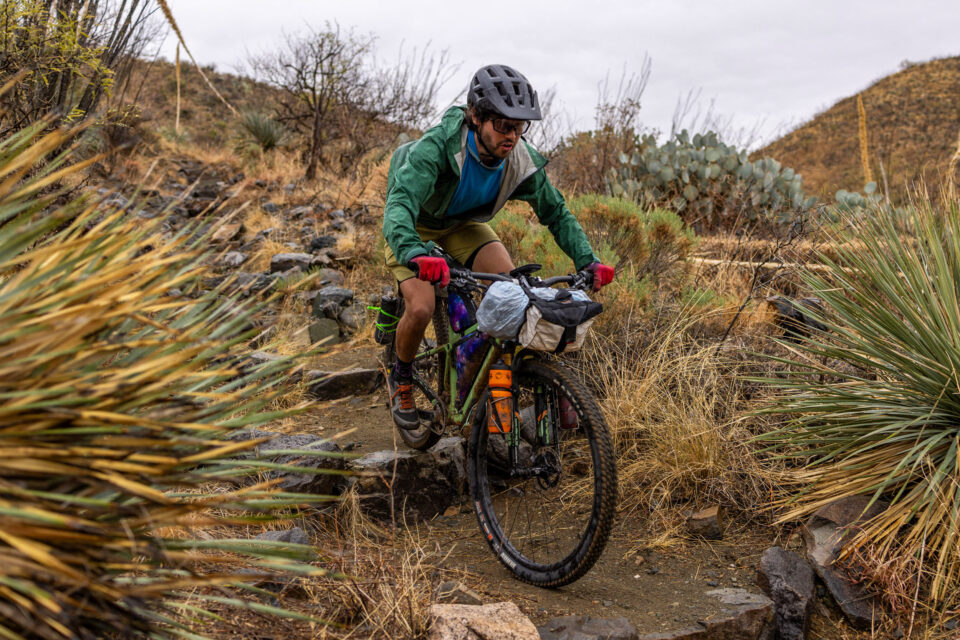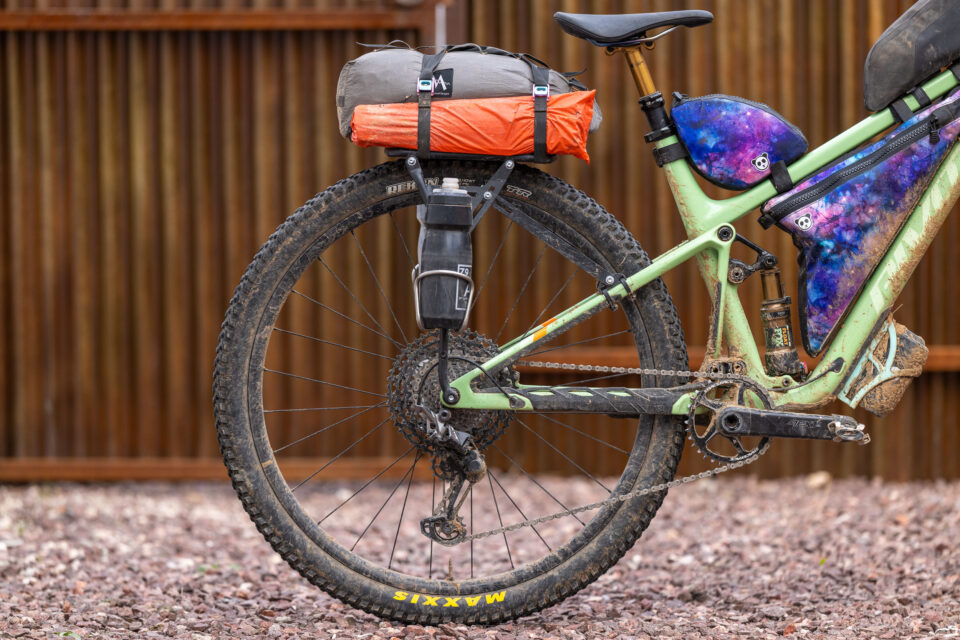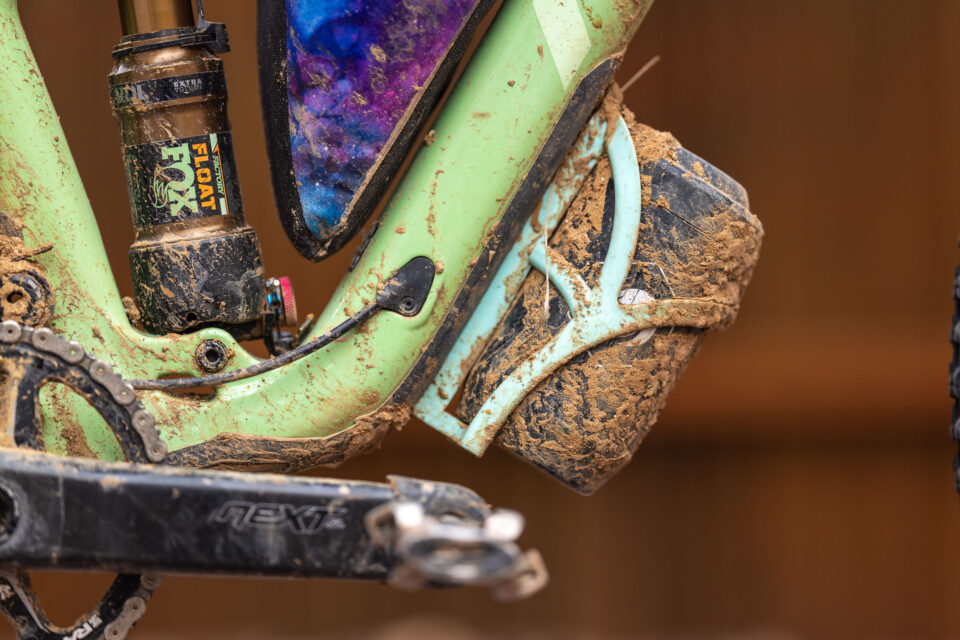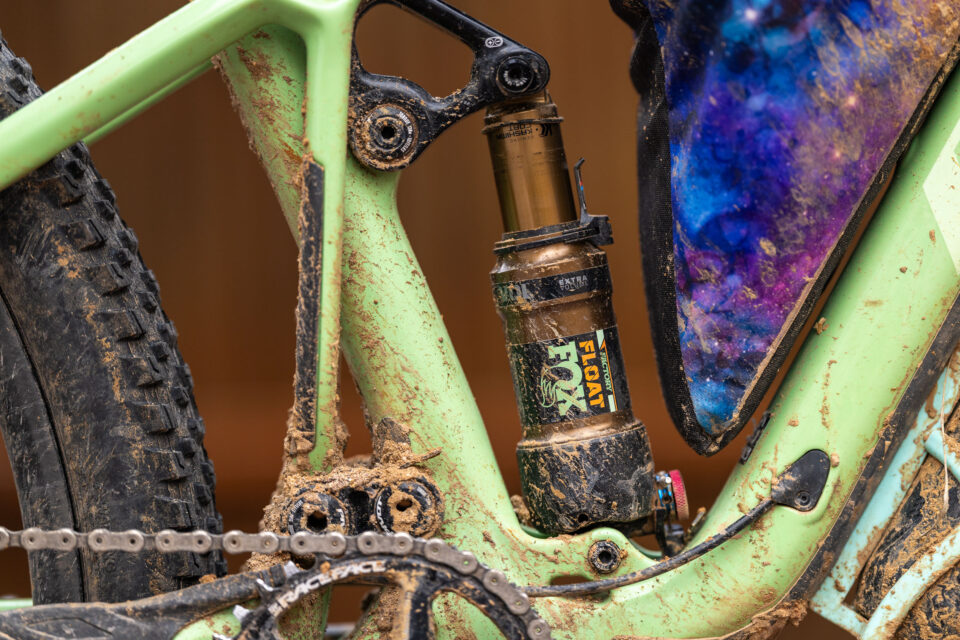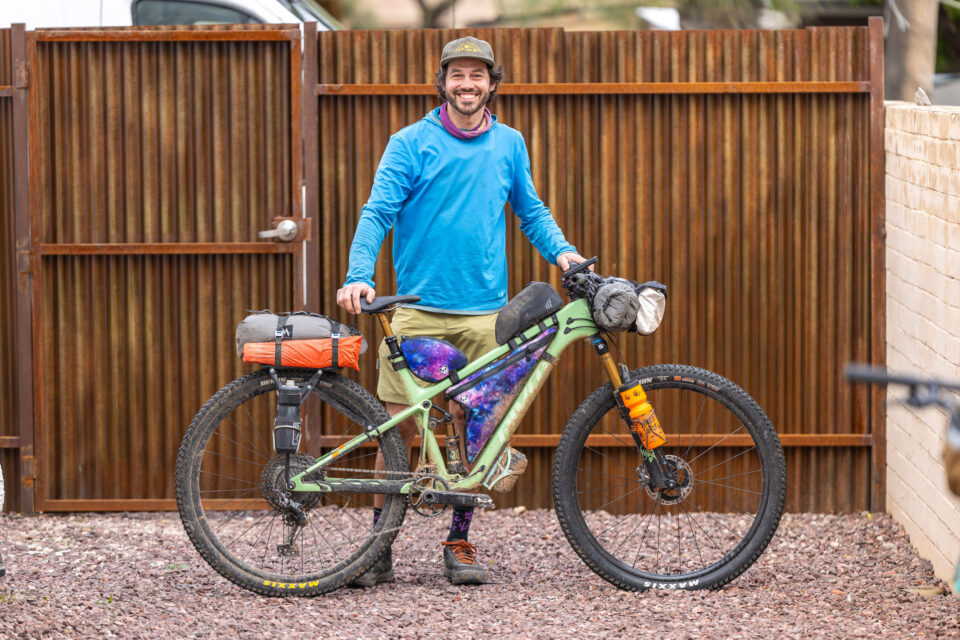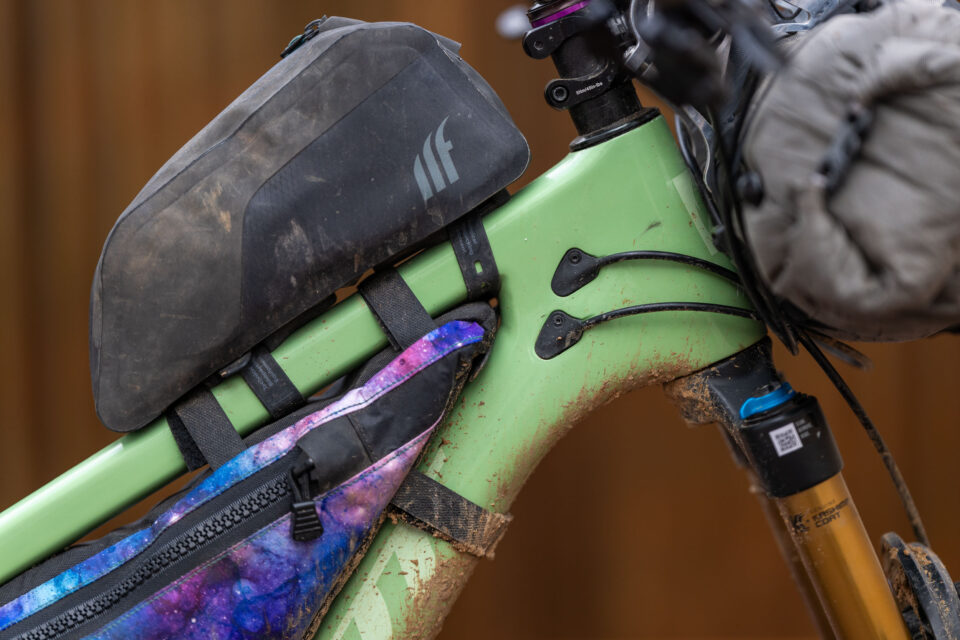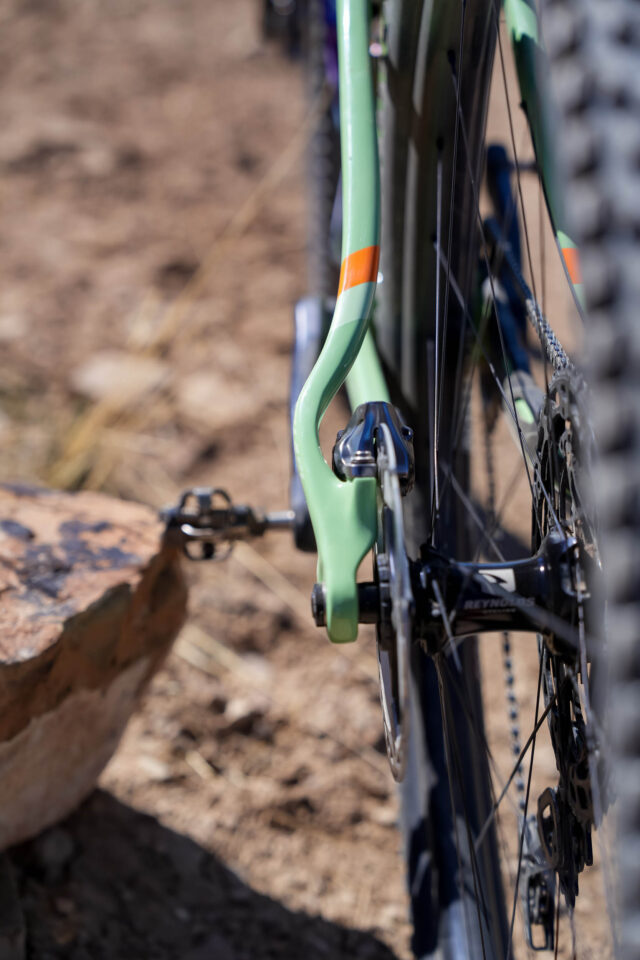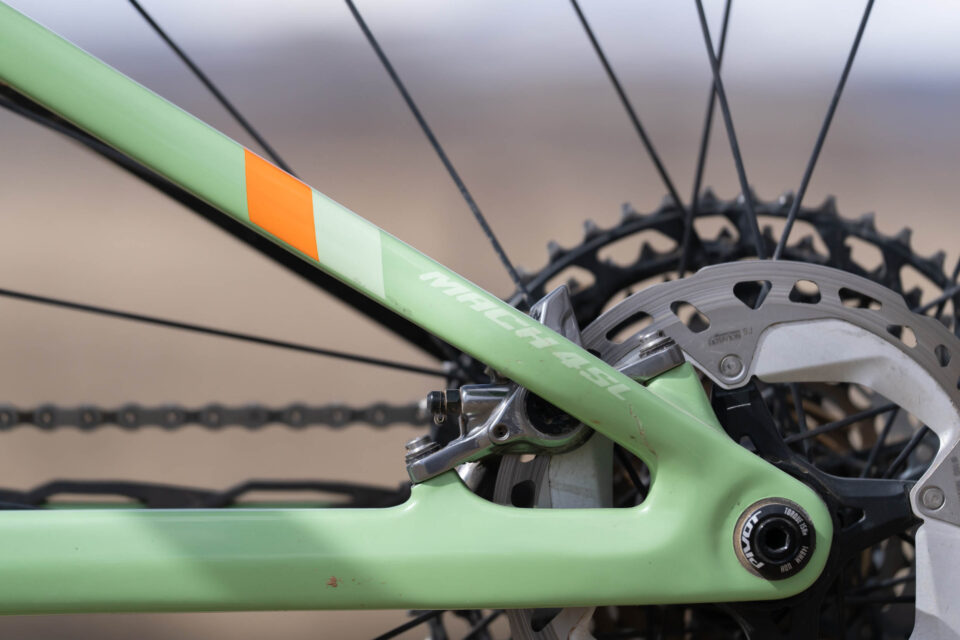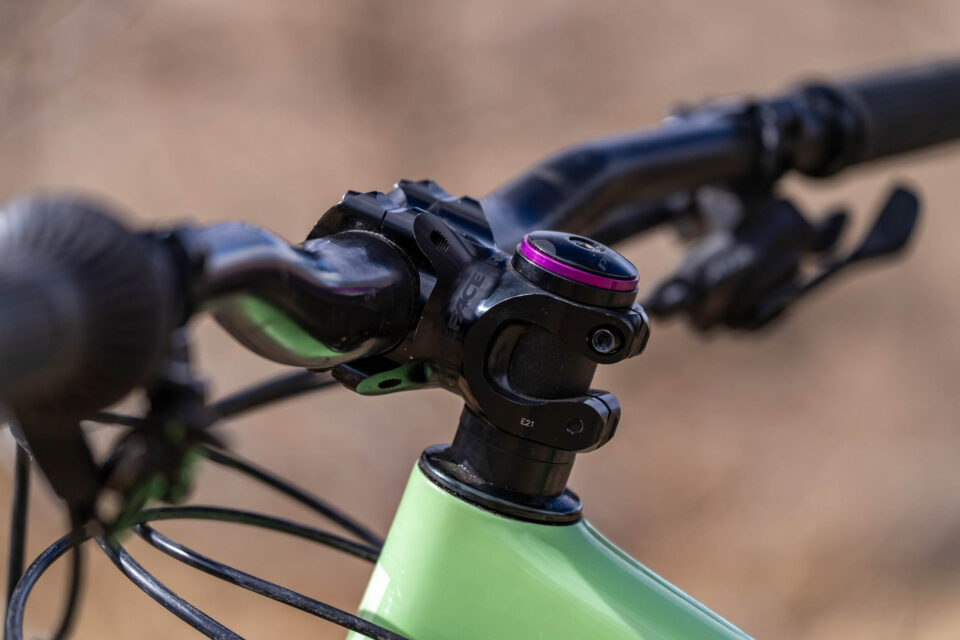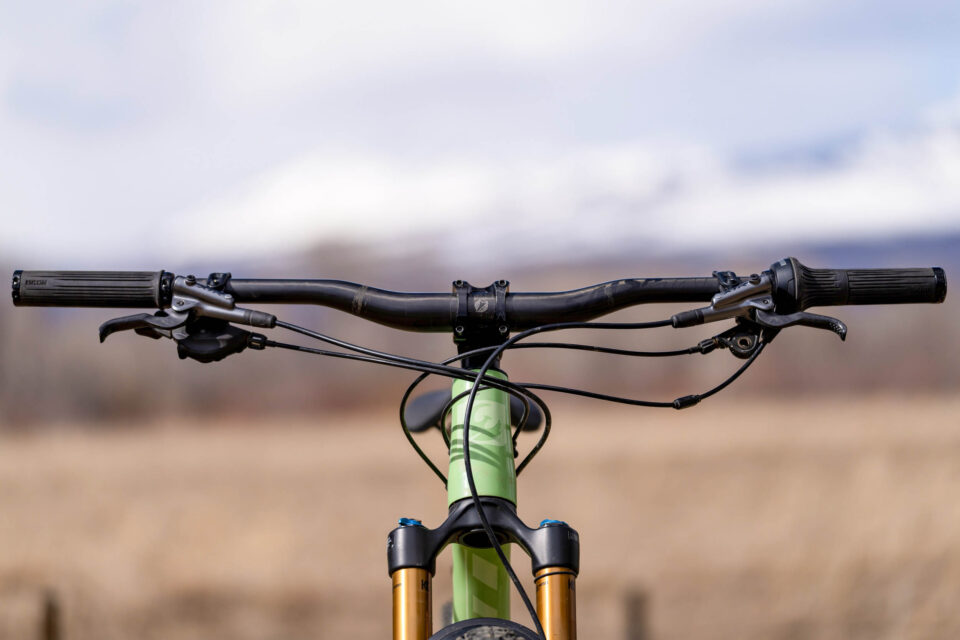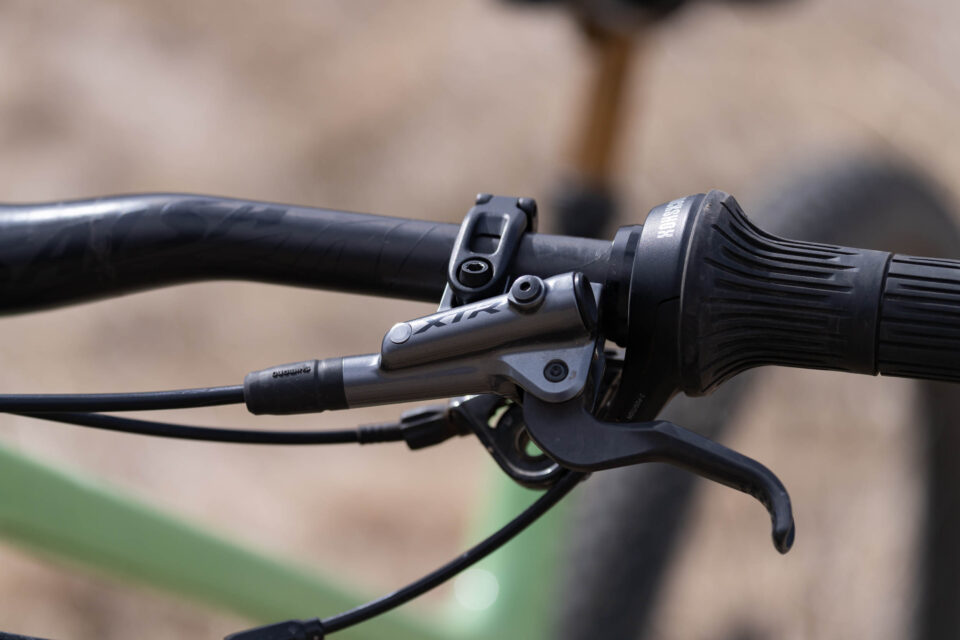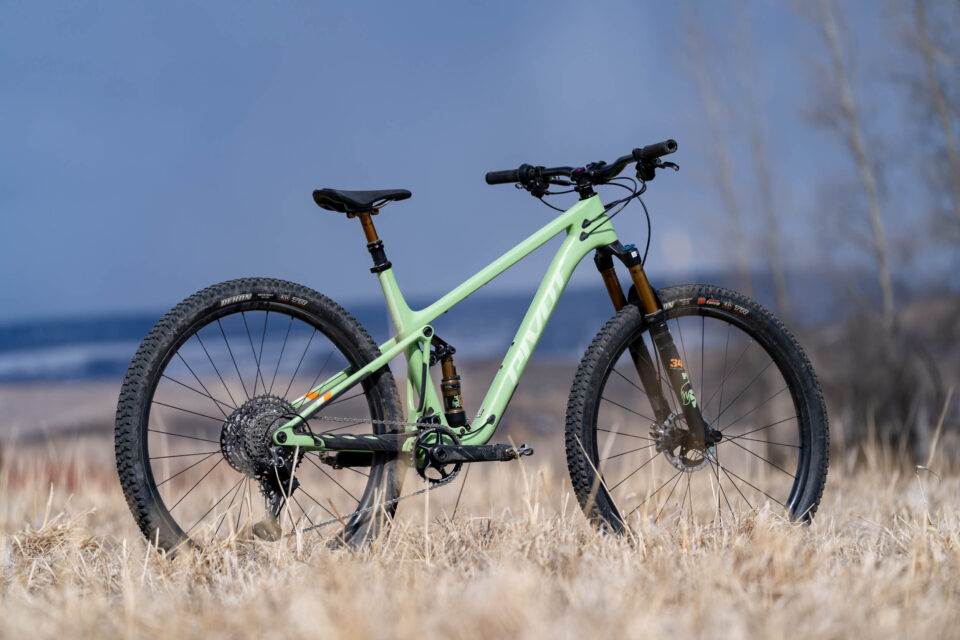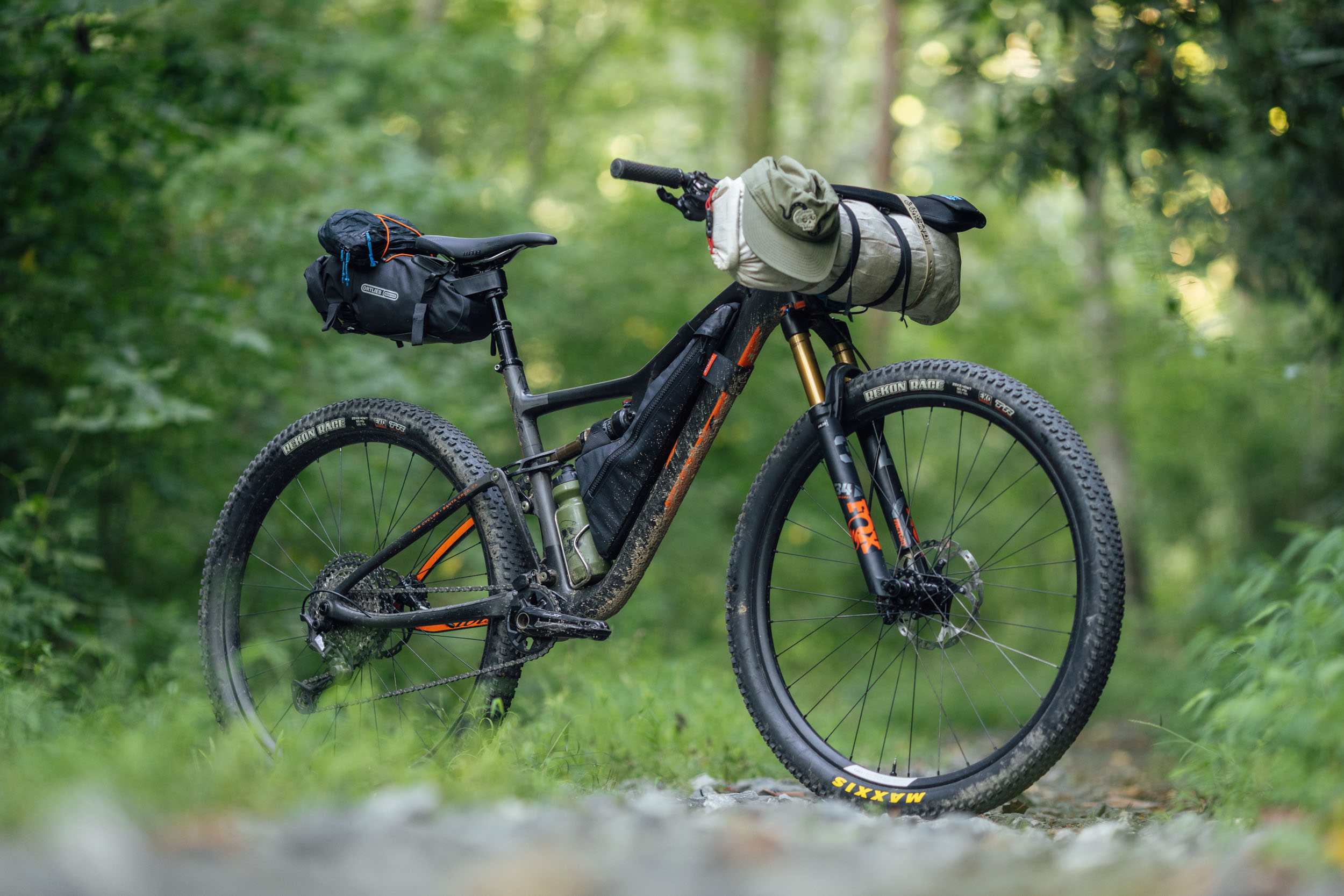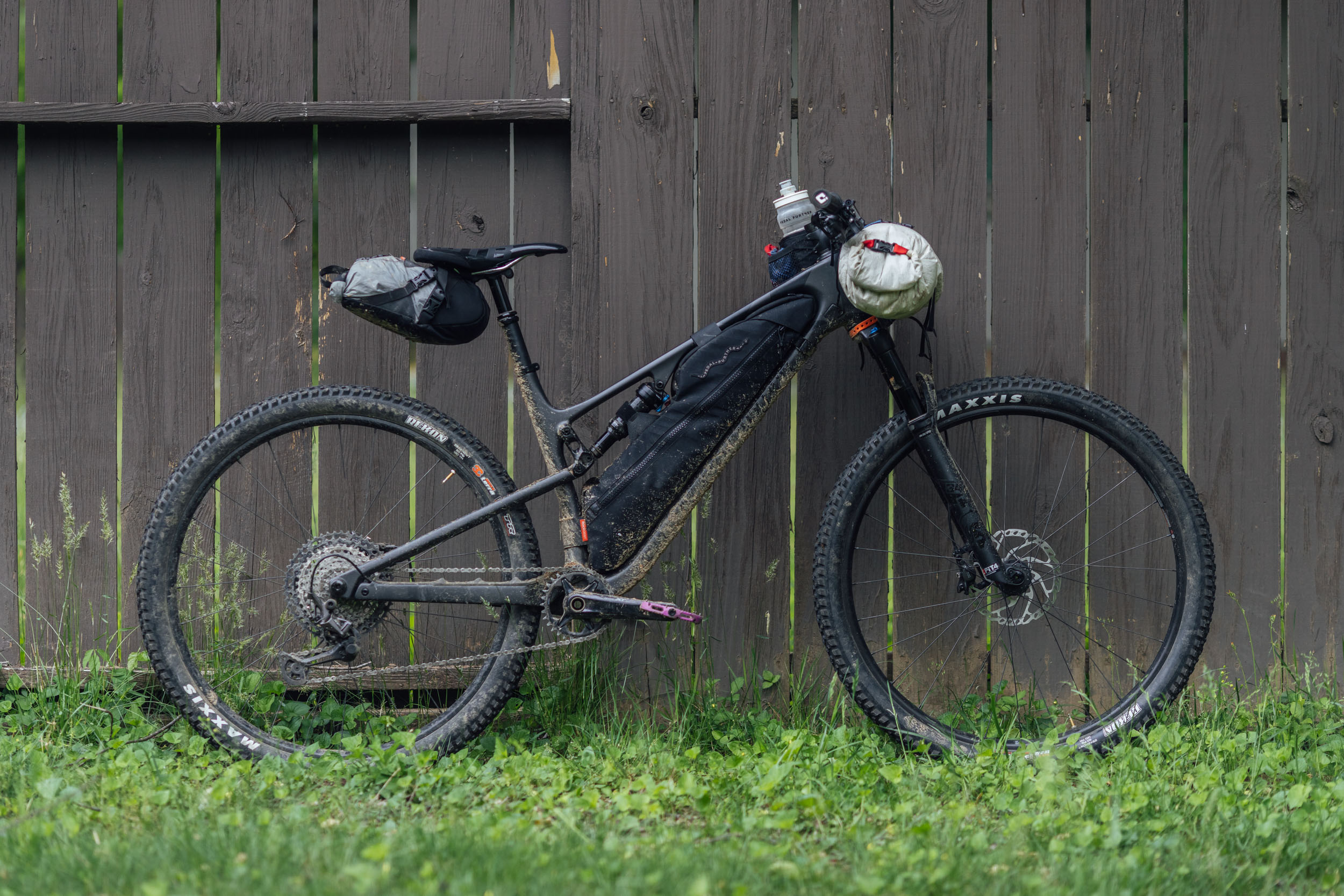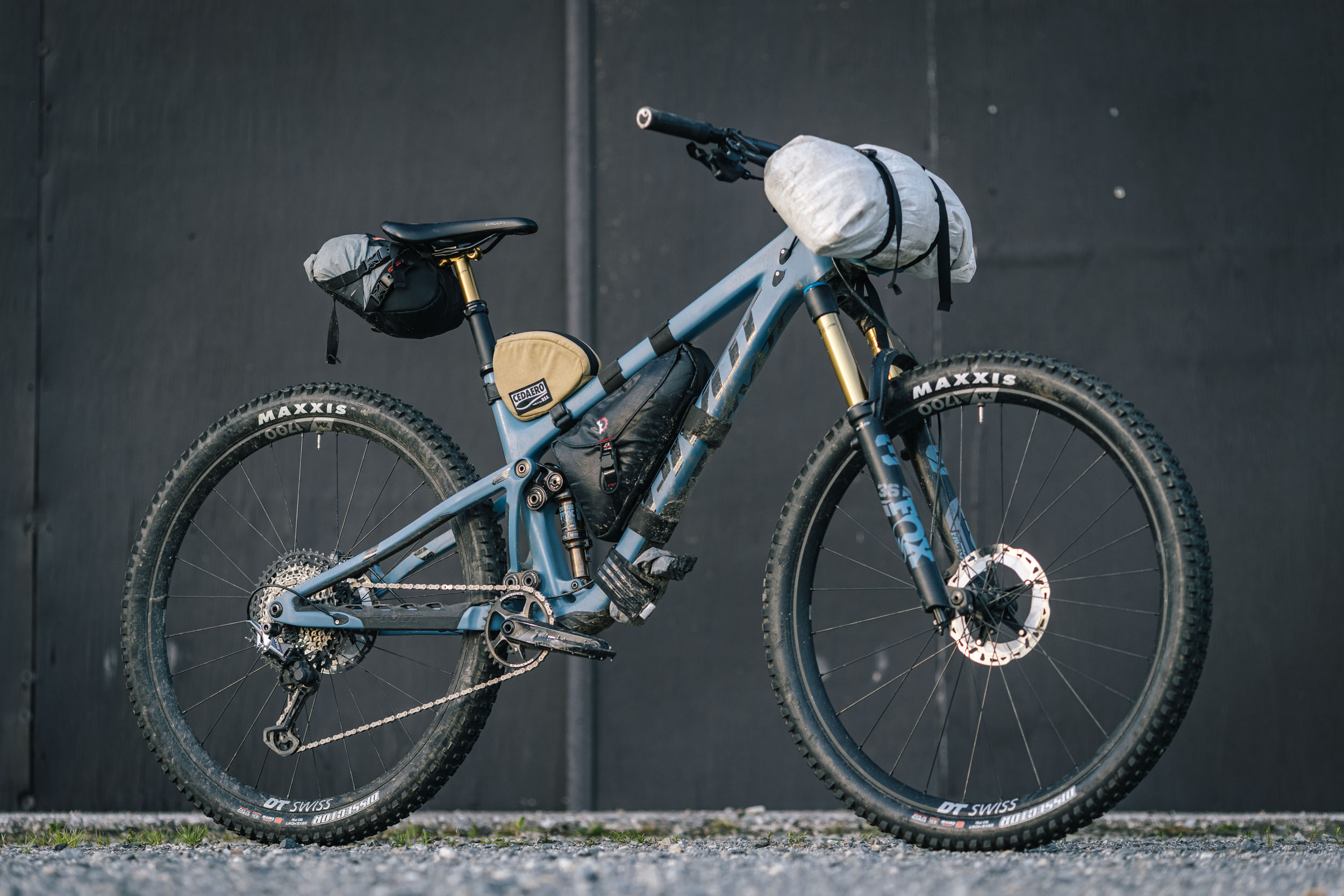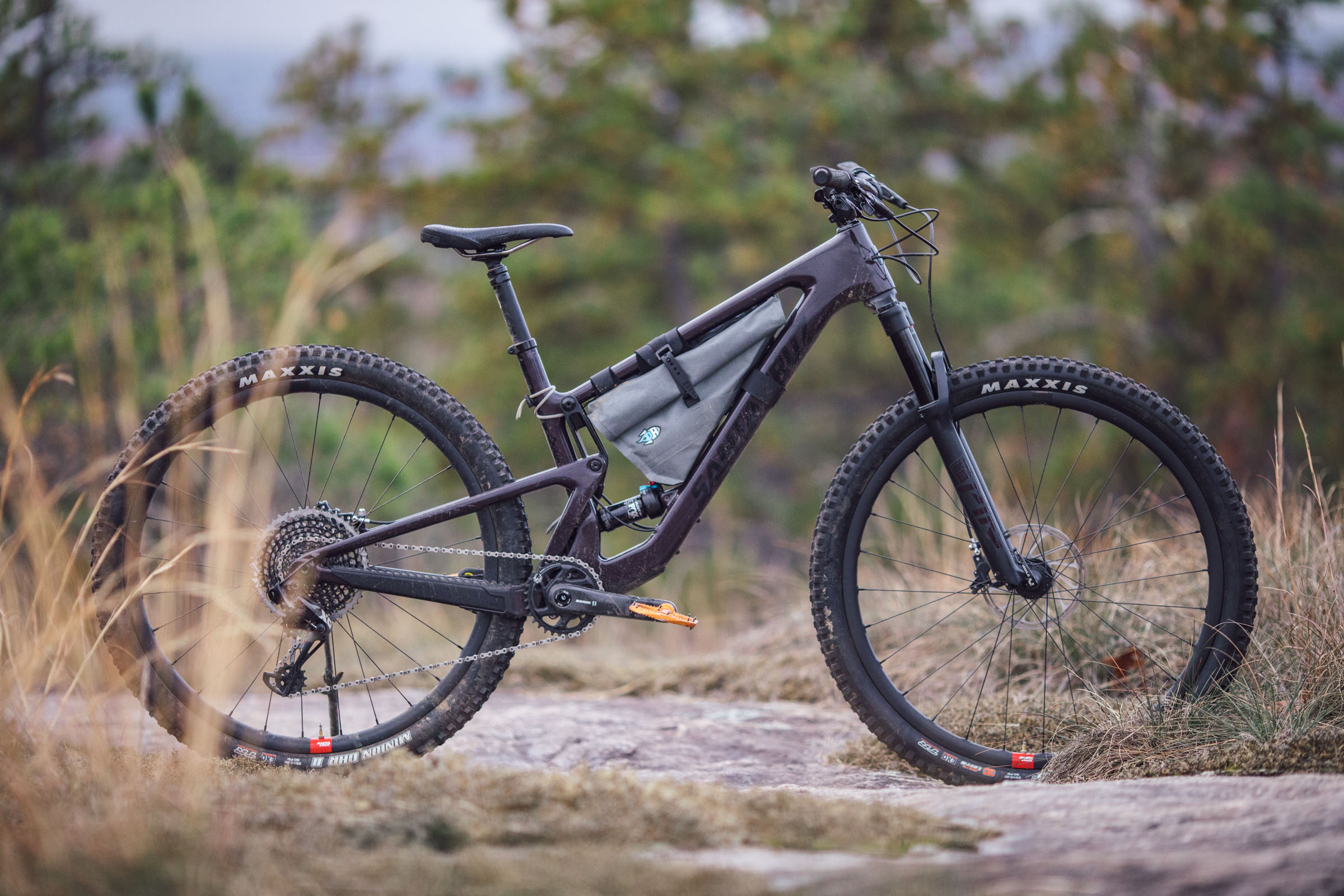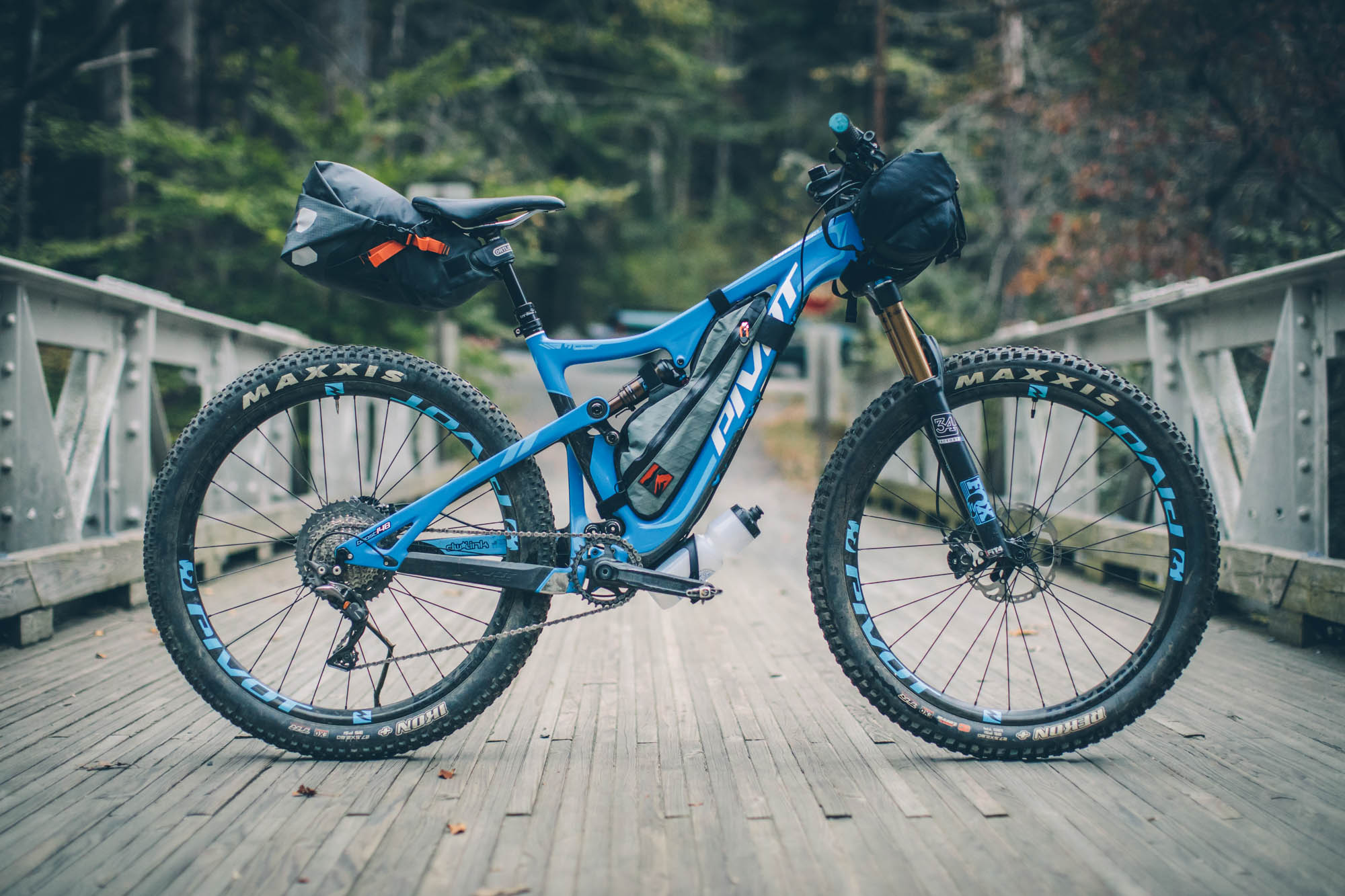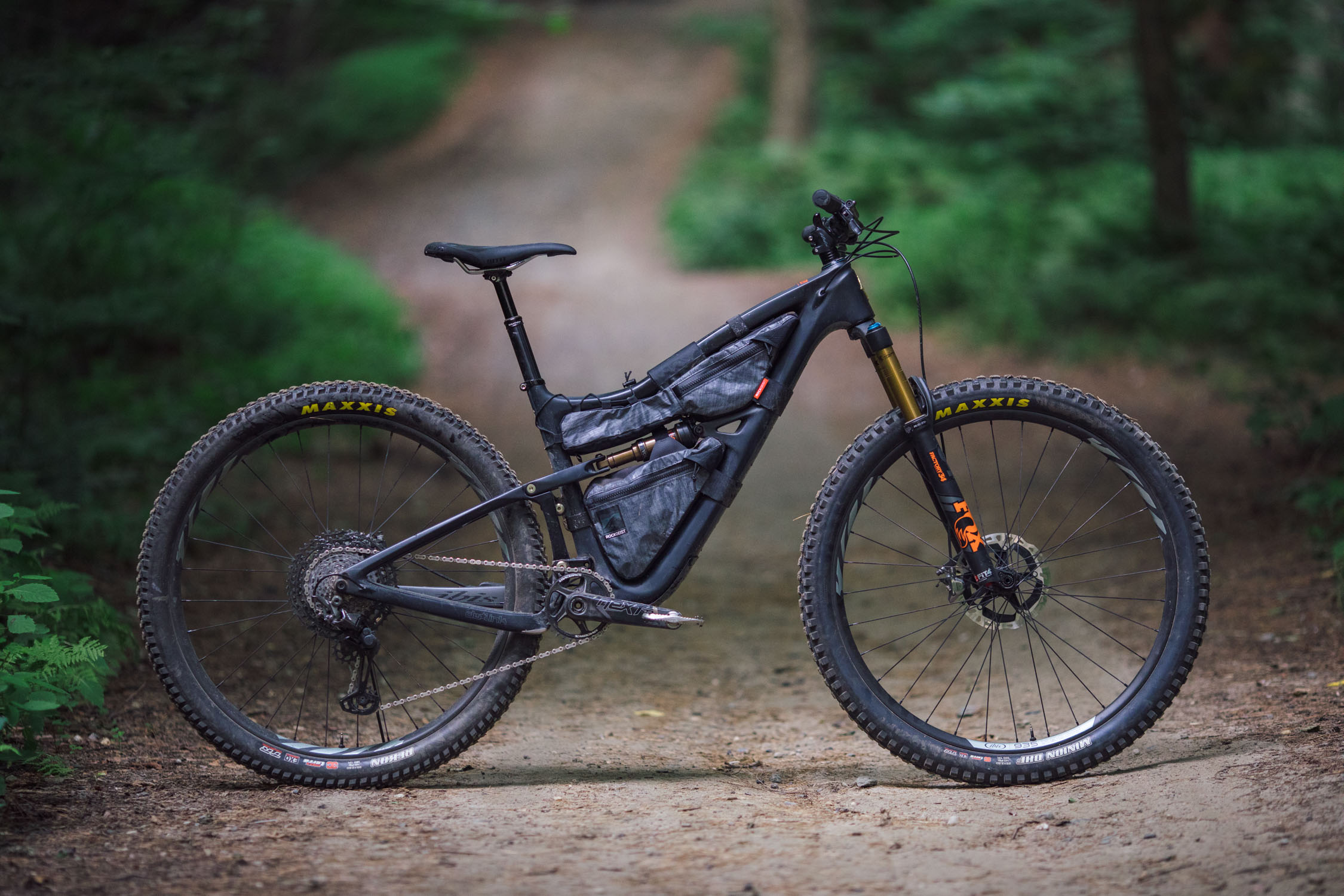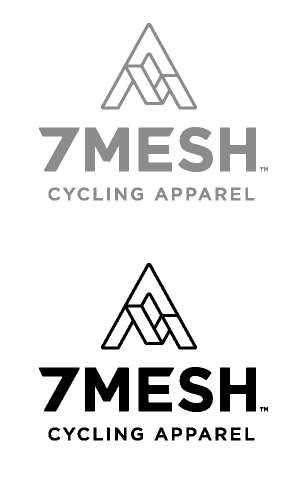Pivot Mach 4 SL Review: A Bikepacking Rocket Ship
Share This
Neil tested the Pivot Mach 4 SL over the last several months, taking it on a multitude of trail rides and a bikepacking trip along the Madrean Rugged Ramble in Arizona. Continue reading for his review with thoughts on how the brand’s latest full-suspension XC race bike performs while loaded, some interesting sizing findings, and how it handles his burly home trails around Gunnison, Colorado…
For the past few months, I’ve been testing Pivot’s latest full-suspension XC race bike, the Mach 4 SL. During that time, I’ve taken it on many trail rides and on a bikepacking trip along the Madrean Rugged Ramble route that features some rugged Arizona Trail singletrack. In this review, I delve into the Mach 4 SL’s updated specs, some interesting sizing considerations I discovered, its pedaling performance, and how it handles once loaded down for a multi-day trip.
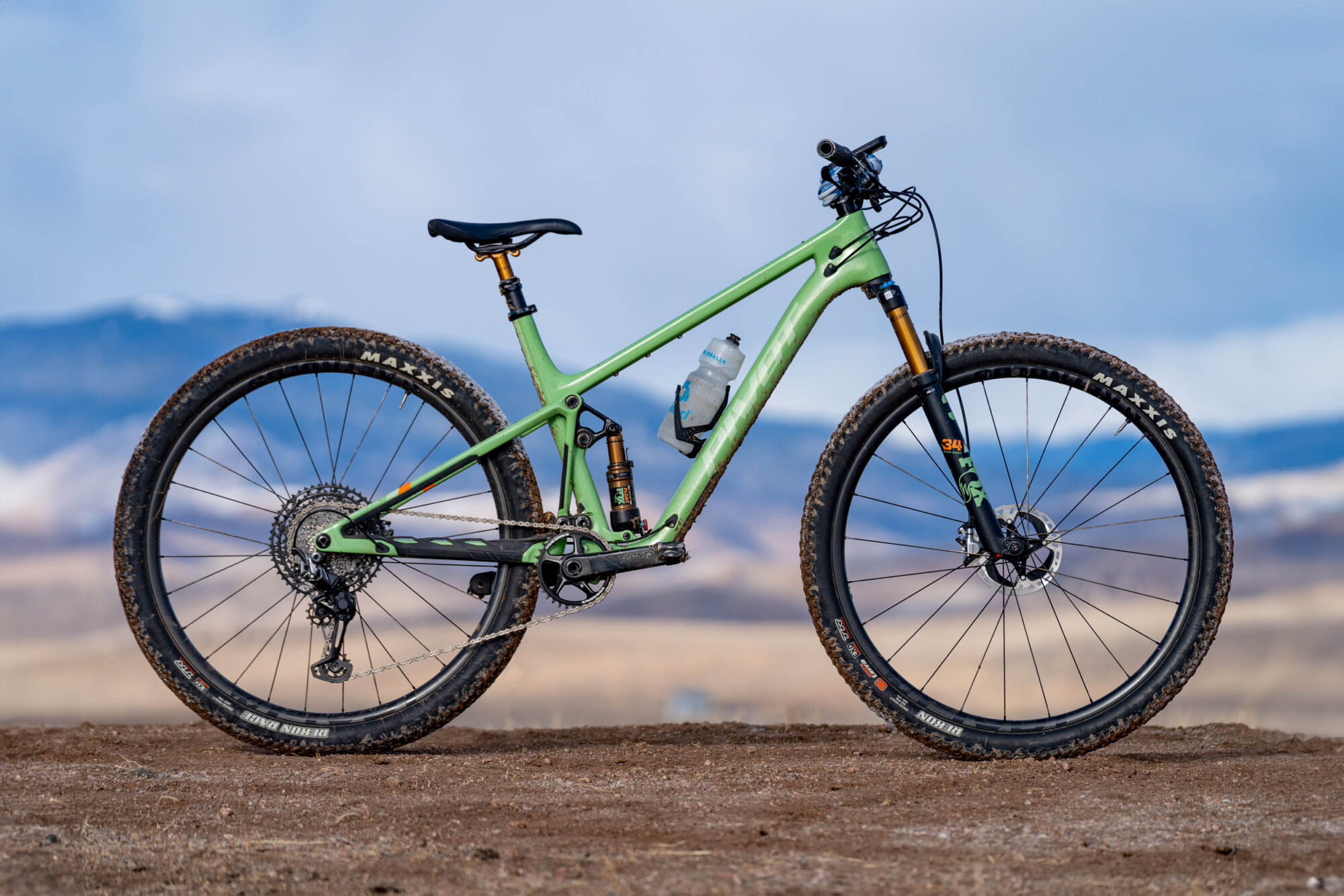
Pivot unveiled the latest iteration of the Mach 4SL last May, and while the new model may resemble its predecessor, there are a few notable differences. Pivot claims they managed to cut 280 grams from the frame’s weight by refining their Hollow Core carbon fiber construction and enhancing the DW-Link Suspension. Additionally, they enhanced the versatility of the Mach 4 SL by offering two versions: a World Cup variant designed for racing with 95 or 103 millimeters of rear travel (adjustable via a flip-chip on the rocker link) and a 100mm fork, and a Trail Build variant with 106 or 115 millimeters of rear travel and a 120mm fork, aimed at elevating the fun factor while preserving the agility of the World Cup version. During my testing of the Trail Build version, set at 115mm rear travel, I found that despite the slackened head tube angle of 66.7 degrees, the frame maintained its race-focused performance characteristics. Watch the full review below, and read on for a written version with photos, specs, pros and cons, and a geometry comparison to other new bikes in its class.
Sizing Considerations
I stand at 5’9.5″ (176.5cm) with a +2cm ape index, indicating a longer arm span compared to my height. This places me squarely in the middle of Pivot’s medium size range, which spans from 5’8″ to 5’11” (172.7 to 180.3cm), according to Pivot. While opting for the medium seemed logical, a glance at the geometry chart left me uncertain due to the shorter 437mm reach. Typically, I prefer a reach around the 450-460mm range for full-suspension bikes. Nevertheless, I trusted the engineers’ expertise and chose the medium size. Upon tackling uphill climbs, the Mach 4SL proved to be a true rocket ship, excelling in speed. However, my first descent left me feeling uncomfortably positioned too far forward, experiencing excessive pressure on my forearms and wrists. Recognizing the race-focused design of the bike, I persisted with the medium for a month, even attempting adjustments such as wider bars. Despite these efforts, I couldn’t get over the feel. Ultimately, I decided to request that we swap for a size large from Pivot. I know it was a big ask, but I’m thrilled I did so because I instantly felt better after I added wider bars and swapped the 60mm stem for a 50, placing me in a more centered position on the bike. While the medium World Cup version with its 450mm reach may have suited me, I wanted to test the less racy version for a more balanced riding experience.
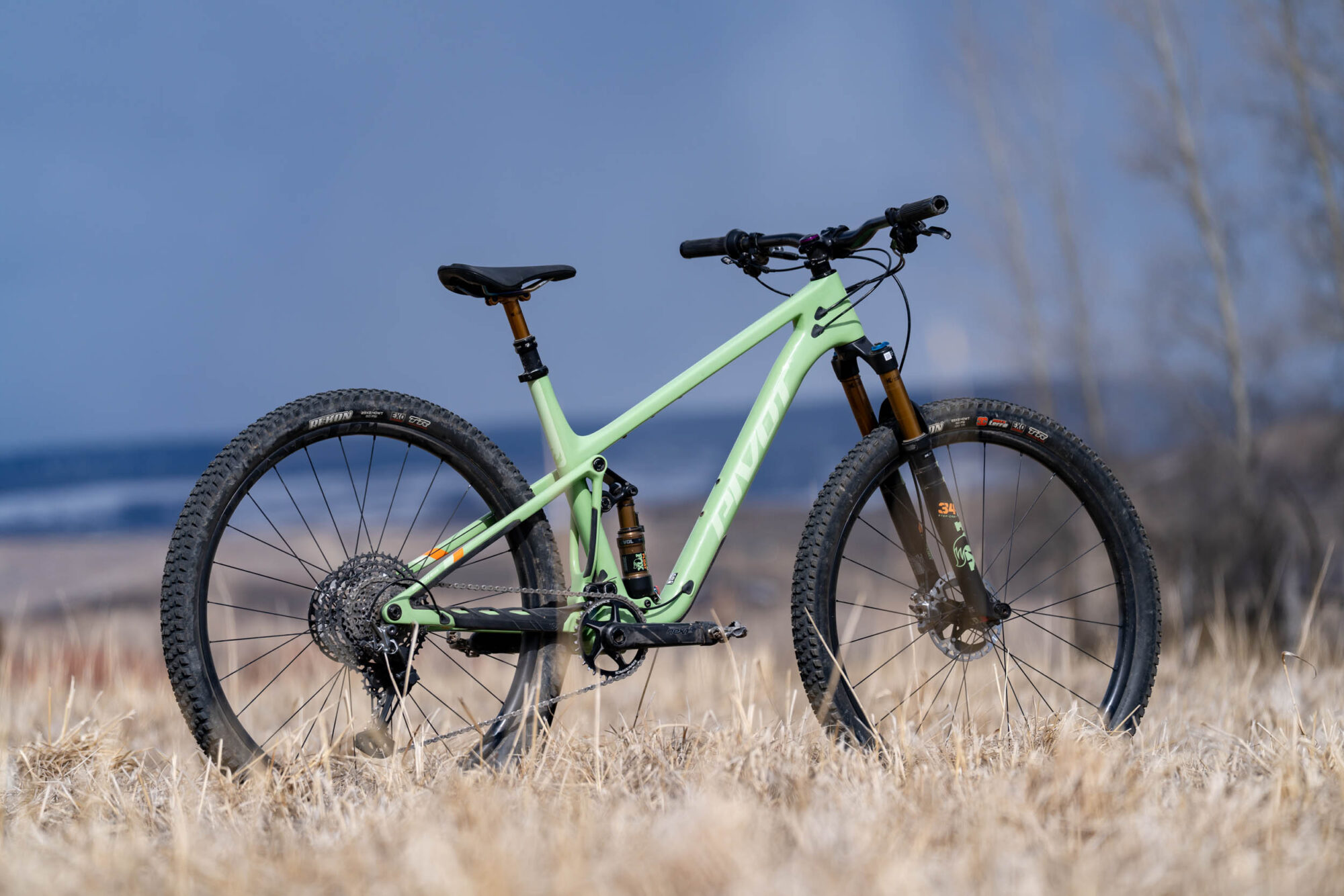
Power Moves
One of the defining characteristics of the Mach 4SL is its remarkable agility and responsiveness—particularly evident during challenging climbs and dynamic power moves—which significantly increased my confidence on the trails. Negotiating technical rock features, step-ups, or tricky rock obstacles became notably more manageable, thanks to the bike’s lightweight construction, the effectiveness of the DW link suspension, and the well-balanced geometry. The Mach 4SL excelled in maintaining exceptional traction and stability, allowing me to confidently tackle steep ascents and technical moves by powering up and pedaling through them, knowing the rear tire would continue to grip and propel me forward. This also extends to descents, where the bike’s nimbleness allows for easy maneuvering, including navigating around obstacles and executing bunny hops with precision. However, I observed that occasionally, when transitioning between technical sections at slower speeds, the rear suspension would compress fully, causing the crank arm to make contact. This issue may have been exacerbated by the bike’s bottom bracket drop and 175mm crank arm length. Maintaining momentum and speed maximizes the Mach 4SL’s performance.
High-speed Handling
Power moves are one thing, but having a bike that instills confidence at high speeds is equally crucial for enhancing the fun factor, whether climbing or descending. Although the Pivot Mach 4SL may not match the sheer stability of a bike like the Esker Hayduke LVS, it has sufficient length to sustain momentum while maintaining adequate control through corners and rough terrain. It’s not a hammer like some larger-travel bikes, but transitioning from the medium to the large size offered a longer 1189mm wheelbase and a 30mm increase over the medium, which was a better fit for my riding preferences. This enhancement translates to added stability, which is particularly noticeable during fast-paced descents. While I could tell the difference with a slight decrease in climbing speed with the larger size, the trade-off is well worth it for more enjoyable trail riding and bikepacking, especially when riding at faster speeds.
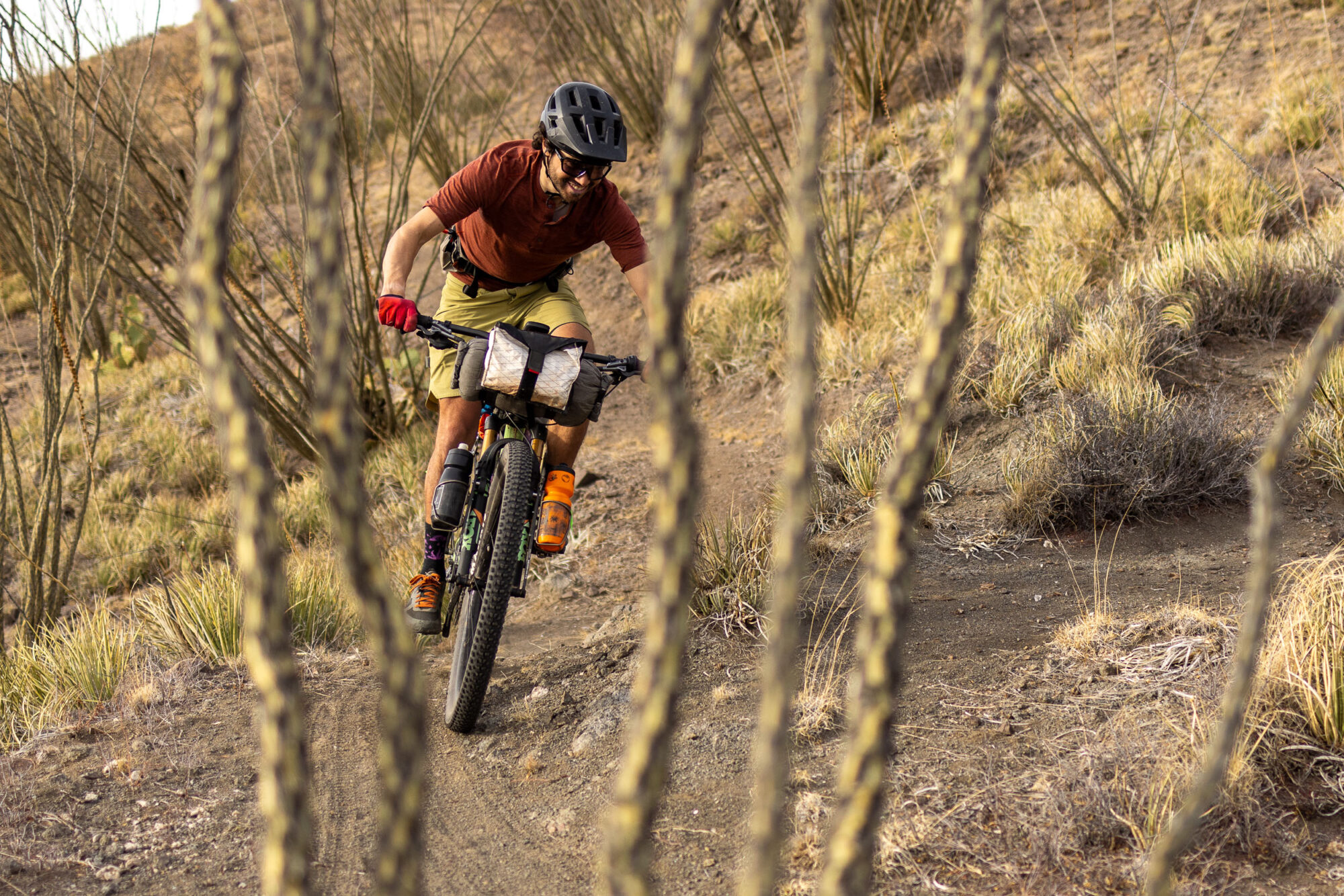
Compared to Other XC Bikes
Many bikes in this category are undoubtedly getting longer and slacker than their predecessors. Here are several 2024 XC bikes, including the new Cannondale Scalpel, the Yeti ASR, and Specialized Epic 8, all of which have a 120mm fork. The Yeti ASR is the only of the other bikes with 115mm of rear travel; all others have 120mm. All these numbers are for a size large:
| Model | Mach 4 SL | ASR | Epic 8 | Scalpel |
|---|---|---|---|---|
| Head Tube Angle | 66.7° | 66.5° | 65.9-66.4° | 66.6° |
| Seat Tube Angle Effective | 74.7° | 75.5° | 75.5° | 75.5° |
| Chainstay Length | 432mm | 439mm | 435mm | 442mm |
| Bottom Bracket Drop | 36mm | 43mm | 37-43mm | 42mm |
| Wheelbase | 1189mm | 1201mm | 1210mm | 1202mm |
| Stack | 617mm | 610mm | 610mm | 607mm |
| Reach | 462mm | 465mm | 475mm | 475mm |
| Top Tube (Effective) | 638mm | 610mm | 633mm | 625mm |
| Front Center | ? | 762mm | 778mm | 763mm |
While Bikepacking
Speaking of bikepacking, I put the Pivot Mach 4SL to the test during a 250-mile bikepacking adventure in southern Arizona, traversing a significant portion of the Arizona Trail and rugged gravel roads over five challenging days. Drawing from my experience tackling the Arizona and Colorado Trail Races on both hardtails and full-suspension bikes, I’ve come to appreciate the comfort and enjoyment that full-suspension bikes offer on demanding trails. However, this luxury does come with its trade-offs, including financial costs and limited storage capacity. The Mach 4SL’s sloping top tube compromises frame bag space but provides enhanced stand-over clearance.
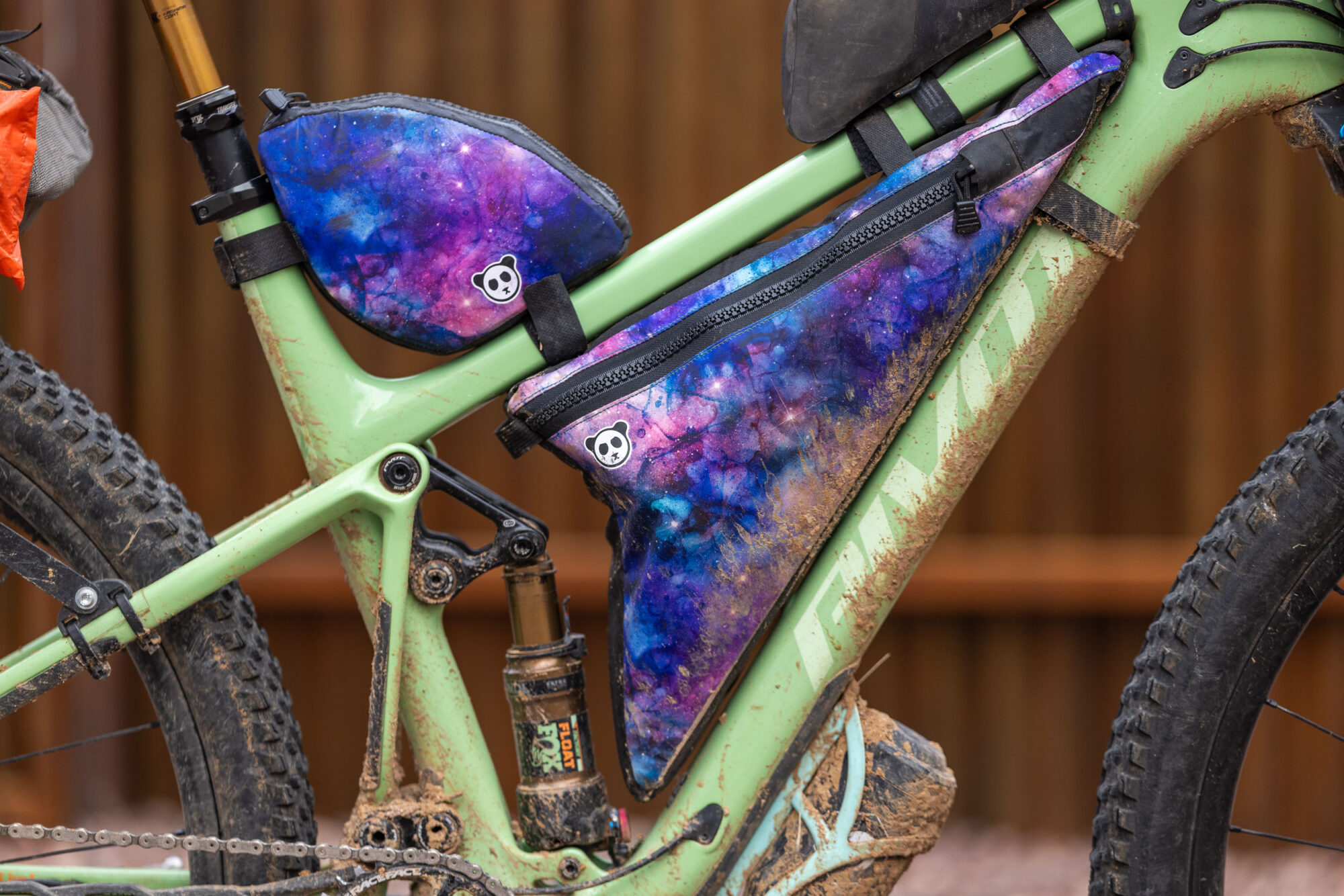
To maximize storage options, I utilized various mounts, including the downtube for my repair kit, Old Man Mountain Axle Packs for water storage, and the stunning custom frame bag by Rogue Panda, which bolts to the mounts on the inside of the downtube. Additionally, the Pivot offers a three-pack set of mounts on the underside of the top tube, which can be used for another bottle or bolt-on bike tool storage kit.
During this bikepacking trip, I outfitted the Pivot Mach 4SL with an Old Man Mountain Elkhorn rack on the rear, which revealed significant side-to-side flex in the rear end under load. I would have used a seat pack to alleviate this, but I was having issues with the Fox Transfer rebounding with weight on it. Although the flex wasn’t overly noticeable while pedaling, it likely accelerated bearing wear and could pose long-term durability concerns.
Despite this, the bike felt great when loaded; it tracked better and felt super grounded. I was consistently impressed with what it could do on technical climbs with fatigued legs. It’s a bike that wants to go fast, and if you’re into racing or “touring with urgency” while loaded, it makes a solid choice for riders seeking both performance and comfort.
Forgettable and Notable Specs
I tested the Mach 4 SL with Pivot’s Team XTR Build. The large size weighed in at a featherlight 25 pounds and 3 ounces (11.4 kilograms) with pedals, a GPS mount, and a bit of dirt. While the weight was impressive, certain aspects of the build left something to be desired. For instance, the 760mm bars initially felt twitchy, prompting me to swap them out for a more stable 800mm bar with a 20mm rise, instantly making the front end feel more stable. Additionally, the XTR two-piston brakes, chosen for weight savings, lacked stopping power, particularly when the bike was loaded. If it were my own bike, I would have opted for a 4-piston brake up front with a 180mm rotor for improved braking performance. Lastly, the chainstay design, which accommodates the caliper, stood out as a notable and unique feature of the bike.
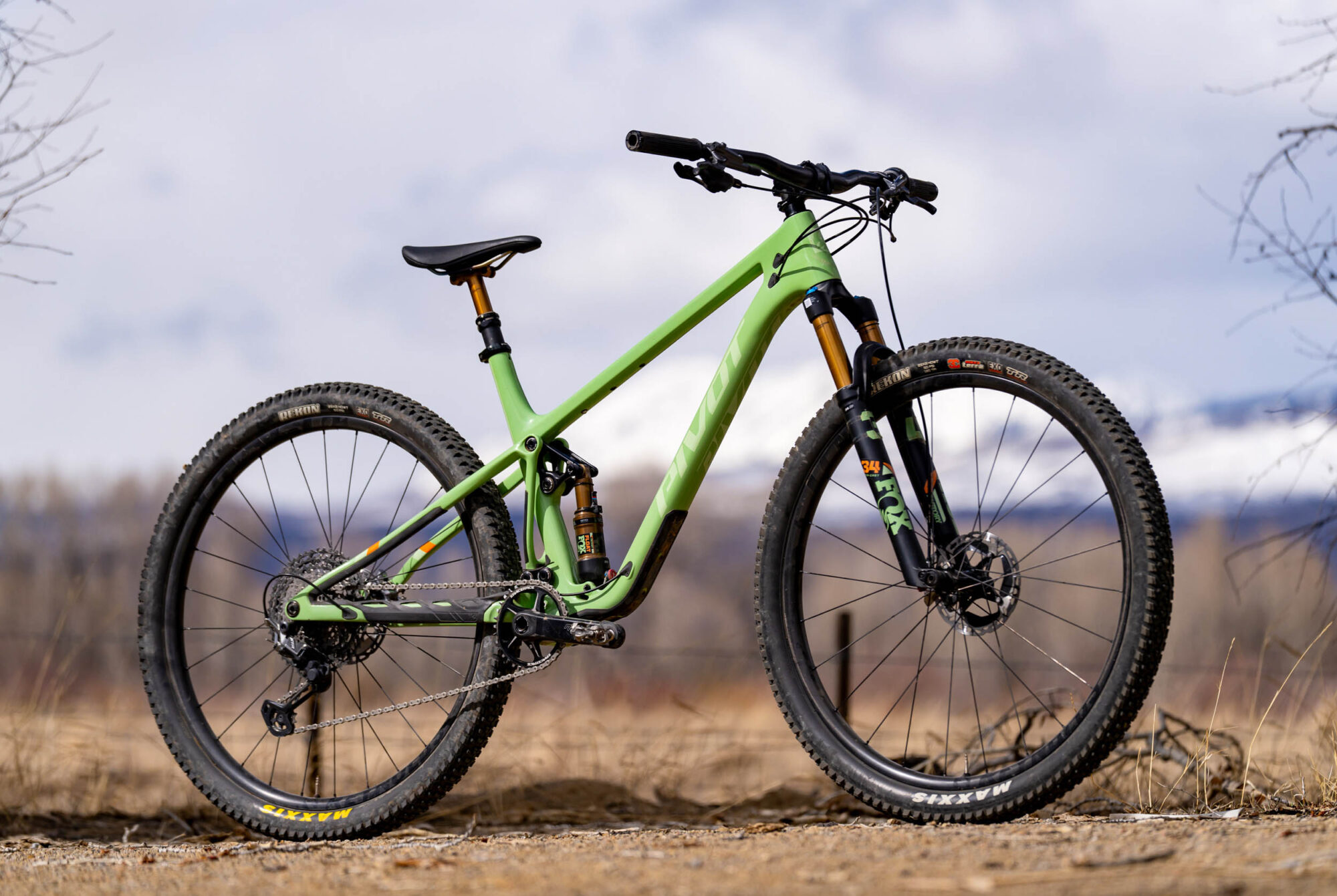
Pivot Mach 4 SL Review Build
- KIT: Team XTR
- MSRP: $9,899 USD
- WHEEL SIZE: 29″
- FRAME: Mach 4 SL
- WHEEL MATERIAL: Carbon
- REAR SHOCK: Fox Factory Float
- FORK: Fox Factory Stepcast 34, 44mm OS, FIT4, 120mm
- HEADSET: Pivot Precision Sealed Integrated Cartridge
- REAR DER: Shimano XTR M9100 SGS 12-Speed
- CASSETTE: Shimano XTR M9100 10-51t
- SHIFTER: Shimano XTR M9100 ISPEC EV
- BRAKES: Shimano XTR M9100 2-piston
- CRANKSET: Race Face Next SL 34t, 175mm
- HANDLEBAR: Phoenix Team Flat Carbon – 760mm
- GRIPS: Phoenix Factory Lock-On, TwistLoc
- STEM: Phoenix Team XC/Trail – 60mm
- SEATPOST: Fox Transfer Factory Series, 150mm
- SADDLE: Phoenix WTB World Cup Volt (Narrow), carbon rails
- WHEELS: Reynolds Blacklabel 309/289 XC w/ Industry Nine Hydra hubs
- FRONT TIRE: MAXXIS REKON 29X2.4 3C TR EXO 120TPI
- REAR TIRE: MAXXIS Rekon Race 29″ x 2.4″ TR, EXO, 120 TPI
- ROTORS: Shimano XTR CenterLock – 160mm
- CHAIN: Shimano CN-M9100 12-Speed
I don’t quite understand the fascination with long crank arms. Pivot outfits their large with 175mm cranks, a common choice among many brands for the larger sizes. However, during my testing period, I couldn’t help but feel that shorter 170mm cranks would have been more suitable. Additionally, my experience with the Fox Transfer dropper left me somewhat disappointed. After just 100 miles, it began to fail to pop up.
On the positive side, I found the twist-loc lock-out feature for the Fox Float shock to be quite convenient, even though it contributes to a busier front end and cockpit. The Industry Nine Hydra Hubs paired with Reynolds carbon hoops provided swift engagement and a stiff, responsive ride, remaining true despite enduring considerable knocks while loaded. The inclusion of the Rekon up front was a plus, prompting me to replace the Rekon Race with another 2.4″ Rekon on the rear for enhanced stopping power and cornering confidence. The bike features the Fox Stepcast 34 Fork with a tire clearance of 2.4″, matching the frame’s clearance. Pivot offers a range of builds, with their Ride builds starting at approximately $5,300 and their top-end Team edition with Sram Flight Attendant priced at an eye-watering $13,000.
- Model/Size Tested: Pivot Mach 4 SL, Size Large
- Actual Weight: 25 pounds 3 ounces (11.4 kilograms)
- Place of Manufacture: Taiwan
- Price: $9,899 USD
- Manufacturer’s Details: Pivot Cycles
Pros
- Impressive rear wheel tracking
- Very quick and responsive
- Climbs like a mountain goat
- Size large descends surprisingly well and fits in the “downcountry” category
- Very lightweight
Cons
- Tire clearance limited to 2.4″
- Flexy rear end
- Would like to see a budget option
- Sizing is very XC oriented
Wrap Up
While the Pivot Mach 4SL may not have been specifically designed as a bikepacking rig, it’s undoubtedly bike that can manage traversing long distances swiftly over challenging terrain. When loaded, it feels even more grounded and stable than it does when not. And if I were still racing in local XC races or tackling demanding events like the Arizona and Colorado Trails or the Highland Trail 550, the Pivot Mach 4SL would undoubtedly be a top contender. However, it’s worth noting that while Pivot aims to broaden its appeal beyond World Cup pro racers with this latest iteration, accessing its performance comes with a hefty price tag. With the cheapest build starting at $5,400 USD across five sizes from XS to XL, it’s clear that prospective buyers need to have a substantial budget to unlock the Mach 4SL’s potential.
Further Reading
Make sure to dig into these related articles for more info...
Please keep the conversation civil, constructive, and inclusive, or your comment will be removed.






